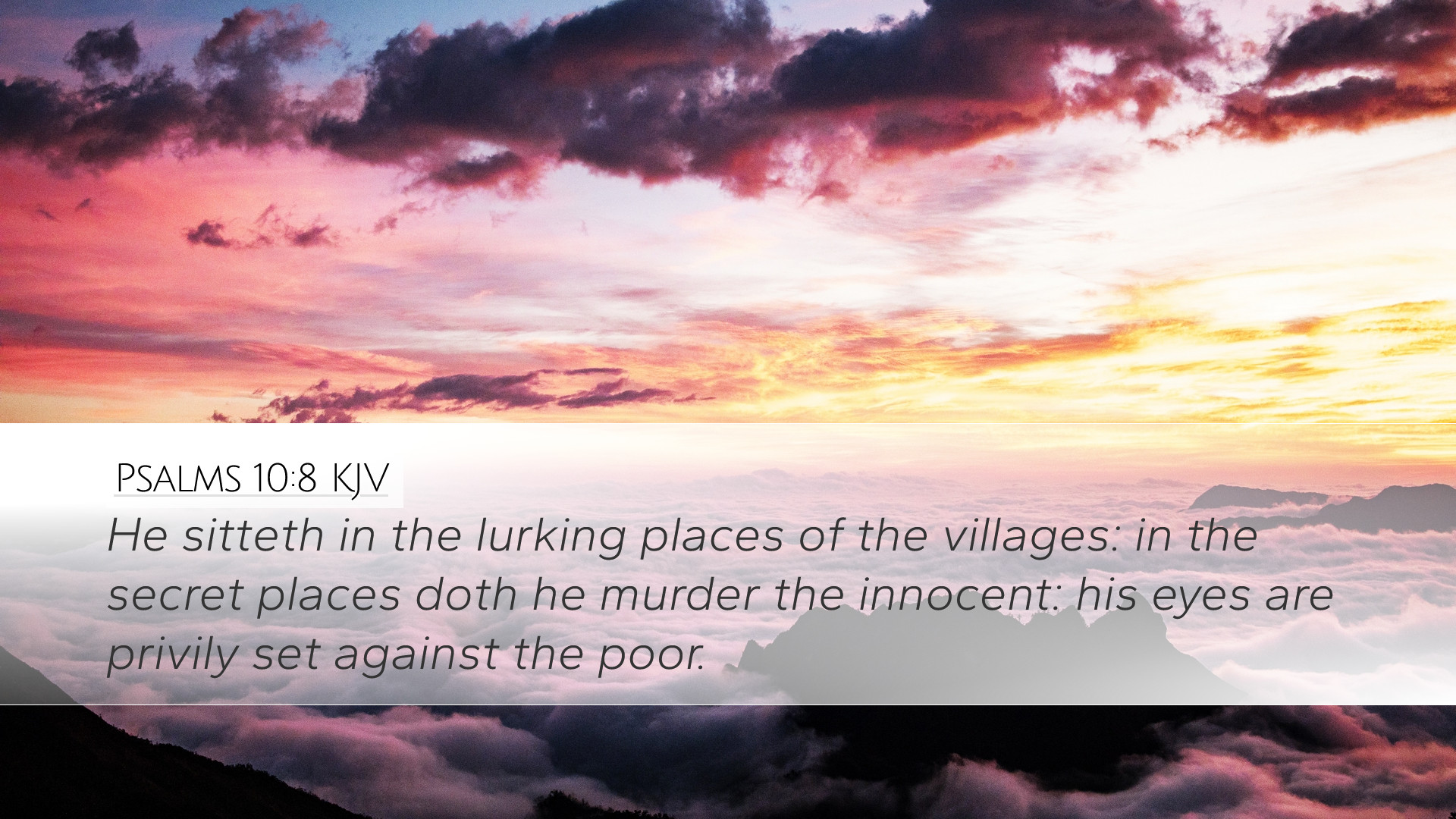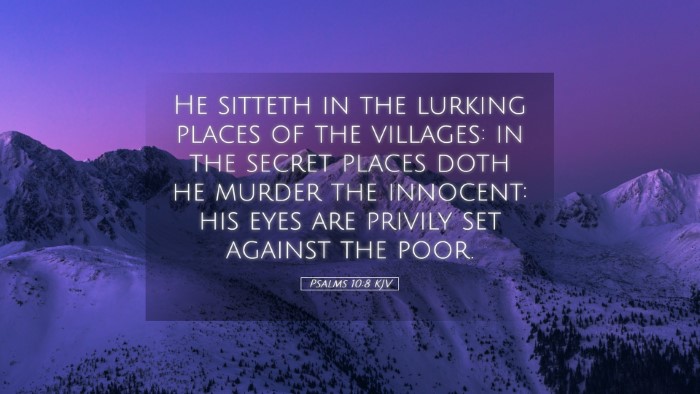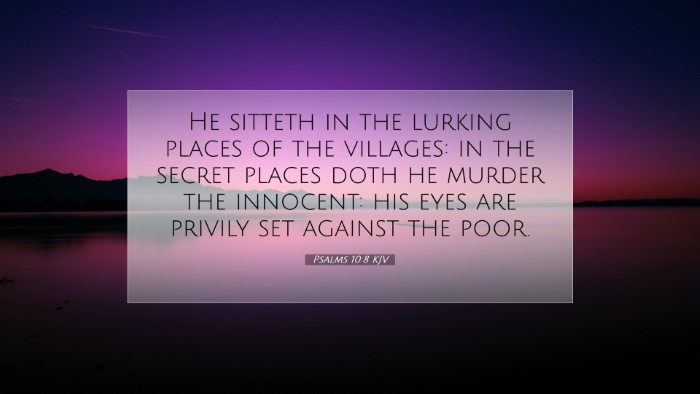Commentary on Psalms 10:8
Psalms 10:8: "He sitteth in the lurking places of the villages: in the secret places doth he murder the innocent: his eyes are privily set against the poor."
Introduction
This verse is a profound observation of the wickedness present in society, particularly focusing on the actions of those who prey upon the innocent and the vulnerable. In this commentary, we will explore insights from notable public domain commentaries, including those by Matthew Henry, Albert Barnes, and Adam Clarke, to glean a deeper understanding of the implications of this verse.
The Context of Psalms 10
The Psalmist, traditionally attributed to David, expresses despair over the apparent prosperity of the wicked while the righteous suffer. Throughout this chapter, the psalmist wrestles with the tension of faith amidst injustice, ultimately calling upon God to reveal His righteousness and intervene against evil.
Verse Analysis
The imagery in Psalms 10:8 is stark and vivid, representing the nature of the wicked and their malevolent activities:
- "He sitteth in the lurking places of the villages": This indicates a deliberate hiding and waiting for opportunities to act—casting the wicked as predatory figures.
- "In the secret places doth he murder the innocent": The phrase underscores the covert and deceitful manner of the wicked's actions, suggesting all forms of harmful intentions that may not be visible to the public eye.
- "His eyes are privily set against the poor": This reflects a calculated targeting of the vulnerable, suggesting that the wicked take advantage of those who are least able to defend themselves.
Theological Implications
This verse raises vital theological questions that resonate through the ages:
- The Nature of Evil: The depiction of the wicked in this verse shows that evil often operates in covert ways. The use of secrecy highlights how moral corruption can thrive in society, hidden from plain sight.
- The Position of the Innocent: The innocent, as mentioned in this text, are not merely victims but serve as symbols of divine righteousness. Their suffering at the hands of the wicked raises questions about divine justice and timing.
- The Call for Divine Intervention: The psalmist’s lament serves as a reminder for believers to cry out for God’s justice, encouraging persistent prayer for those who suffer due to oppressive circumstances.
Insights from Matthew Henry
Matthew Henry, in his expository writing, describes this verse in the context of societal corruption. He notes:
- Predatory Nature of the Wicked: Henry emphasizes that the wicked often lurk where they can exploit and harm others without fear of detection.
- The Disregard for the Innocent: He remarks on how the innocent become easy targets because of the lack of protection afforded to them, painting a grim picture of the consequences of societal neglect.
Insights from Albert Barnes
Albert Barnes provides a thorough examination of the nature of the wicked's actions:
- Malice Against the Poor: Barnes highlights the specific targeting of the poor, suggesting a systematic and malicious spirit that enjoys inflicting harm upon the less fortunate.
- Secret Schemes of Evil: His commentary draws attention to the premeditated nature of evil plans, showcasing the lack of conscience among those who engage in such behavior.
Insights from Adam Clarke
Adam Clarke expands on the verse by interpreting the themes of justice and retribution:
- Suffering of the Innocent: Clarke reflects on the reality that the righteous often suffer in silence while the wicked seem to thrive, leading to a call for eventual divine justice.
- The Role of God: He reminds readers that God is not indifferent to suffering; He sees the secret places and will one day act upon what He sees.
Concluding Thoughts
Psalms 10:8 provides a piercing glimpse into the human condition, highlighting the existence of systemic evil that affects the innocent and poor. The insights from various commentators remind us that the struggle against such wickedness is not a new battle and that the faithful are called to remain vigilant in prayer and action.
As we reflect on these truths, may we not turn a blind eye to the lurking places of our own contexts, but rather seek to embody justice and mercy in our communities, upholding the dignity of every individual, especially those who suffer.


